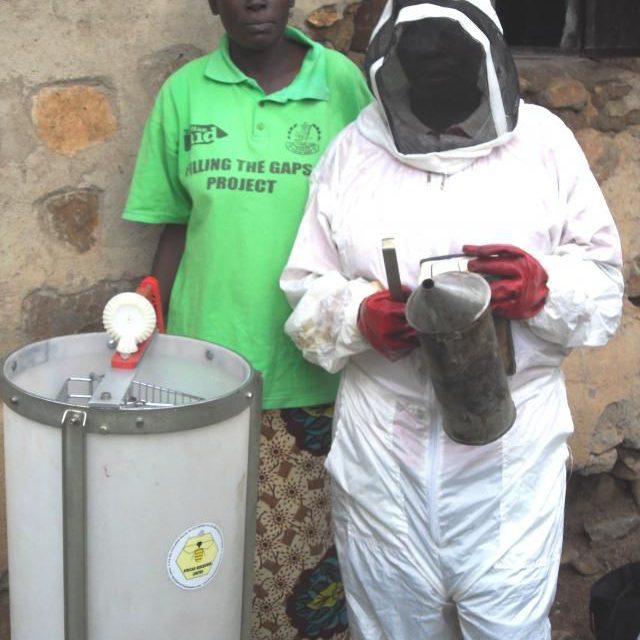Seeing the Link Between Health and Poverty in Kenya, Part 2

Anglican Development Services (ADS-Nyanza), an Episcopal Relief & Development church partner, began working in Moro, Kenya, in 2008. Since that time, the number of local HIV/AIDS support groups has grown from six to 14. The groups now include HIV-negative individuals — an indication that stigmatization is being replaced by common goals. With assistance from ADS-Nyanza, the groups also started Community-Based Health Financing (CBHF) programs, health insurance funds that are collectively funded and owned. Individuals pay a premium each week (as little as 10 Kenyan shillings, or 13 cents in the United States), and the fund pays health clinics directly when someone has medical needs.
The effect of an integrated approach was evident in the words and faces of residents. “If you look at the women of Moro,” said one woman, well into her seventies, “you can see that we are all healthy and young.” Others repeated this idea – “We feel young!”
This youthful energy comes from feeling healthy. When I asked how many people had gotten malaria in the last two months, not a single person raised their hand. “Our mosquito nets are pulled down around our beds by 6 pm,” said one woman. When asked how many drank safe water, had latrines, and used soap for handwashing, an overwhelming majority answered affirmatively. These practices have helped the community ward off diarrheal and other waterborne diseases.
The zest Moro residents described also stems from financial security. Improved health means people have the energy to engage in productive activities, resulting in income, savings, and hope for the future. The success of the group businesses has allowed individuals to start their own small businesses, such as making rope and baskets, selling food items, and raising goats or poultry. They use this income for their families’ needs, including nutritious food to bridge gaps when crops fail; school-related expenses for their children; and reinvestment in their businesses.
The lessons shared with me are simple and powerful. Moro community members say that they have learned the value of savings – of having money available for times of crisis or important opportunities. They have seen the power of working together towards a common purpose. They have learned to be savvy in business – adapting their income generation projects based on market demands. And they know that they must be constantly vigilant of their health.
The challenges are still many. Flooding and droughts ensure food insecurity is an imminent threat at any time. More clean water sources are needed, especially for the dry seasons, as well as latrines and handwashing stations. Women still worry that health clinics are too far away when they go into labor. And nearly all families are caring for children from their community orphaned by AIDS.
Yet residents also say that the program has been transformative. They are no longer as fearful about their health, going hungry, or meeting basic needs. They believe in their capacity to care for their families, and are hopeful about their children’s future. In the end, this is what sustainable development is all about.
———-
Saranga Jain is a Program Officer with Episcopal Relief & Development.
Photos: Top – A Moro community member in her beekeeping gear. Beekeeping is one of the types of small businesses that have enabled residents to earn more income. Bottom – A community health center chart reflects residents’ increasing awareness of the importance of health care.


